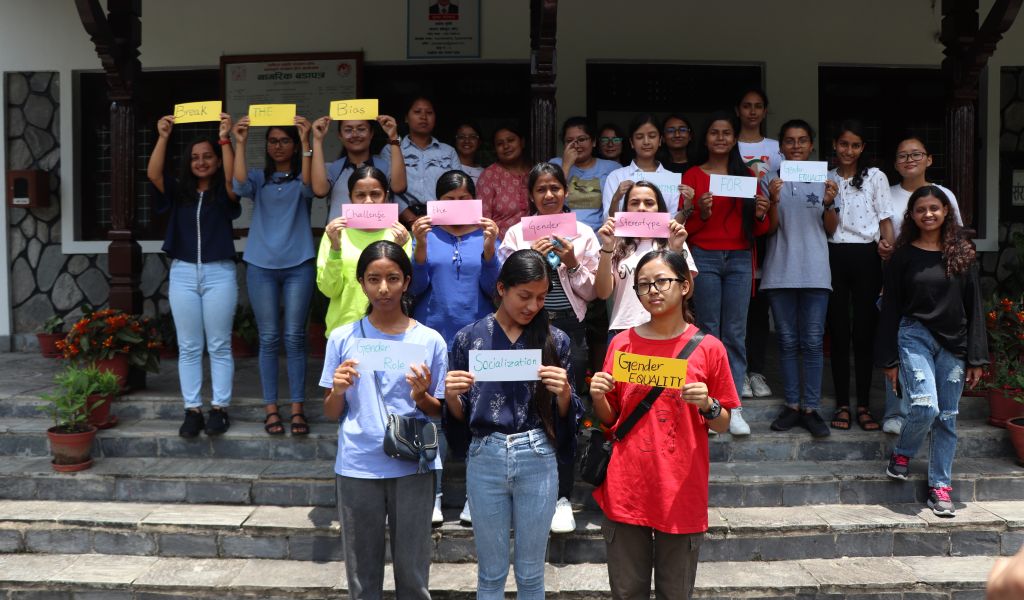Gender in academia: shaping future forestry practitioners for equity and inclusion

RECOFTC Nepal collaborated with the Institute of Forestry (IOF) and the Female Foresters’ Network to help over 120 students better understand gender dynamics. The students came together to discuss and build their understanding of gender inequalities, biases and harassment, as well as challenges and opportunities for mainstreaming gender in forestry institutions.
Through the WAVES program, RECOFTC Nepal held three training sessions at: the Institute of Forestry, Pokhara; the Institute of Forestry Hetauda; and the Agriculture and Forestry Institute, Hetauda. The training sessions were held for a day and a half at each institute. Gender equality and social inclusion are essential to the disciplines of good governance and sustainable development. However, many academic institutions in Nepal have yet to embrace gender equality and social inclusion.
The training sessions engaged youth so that they develop a stronger knowledge base and tools to design solutions for inclusive forest landscapes with sustainable communities. Guided by RECOFTC Nepal and gender experts, the students strengthened their commitment and understanding of gender equality. They learned about social norms that determine gender differences, social constructs, socialization processes, bias and types of harassment.
“The stereotypes in our society have warped our views of gender roles. It stops us from perceiving the negative norms and biases behind the labels,” said Manoj B. K., a student at IOF Pokhara Campus. “It’s challenging to discuss gender issues in our society, but we need to commit to eliminating the negative biases at personal, community and institutional levels.”
While government policies and regulations can promote gender equality, there is a strong need to create awareness, understanding and skills to shift people’s perception of gender roles. Universities are critical partners for positive change in promoting gender equality and social inclusion. By building knowledge and outreach, their impact on society can be transformational.

